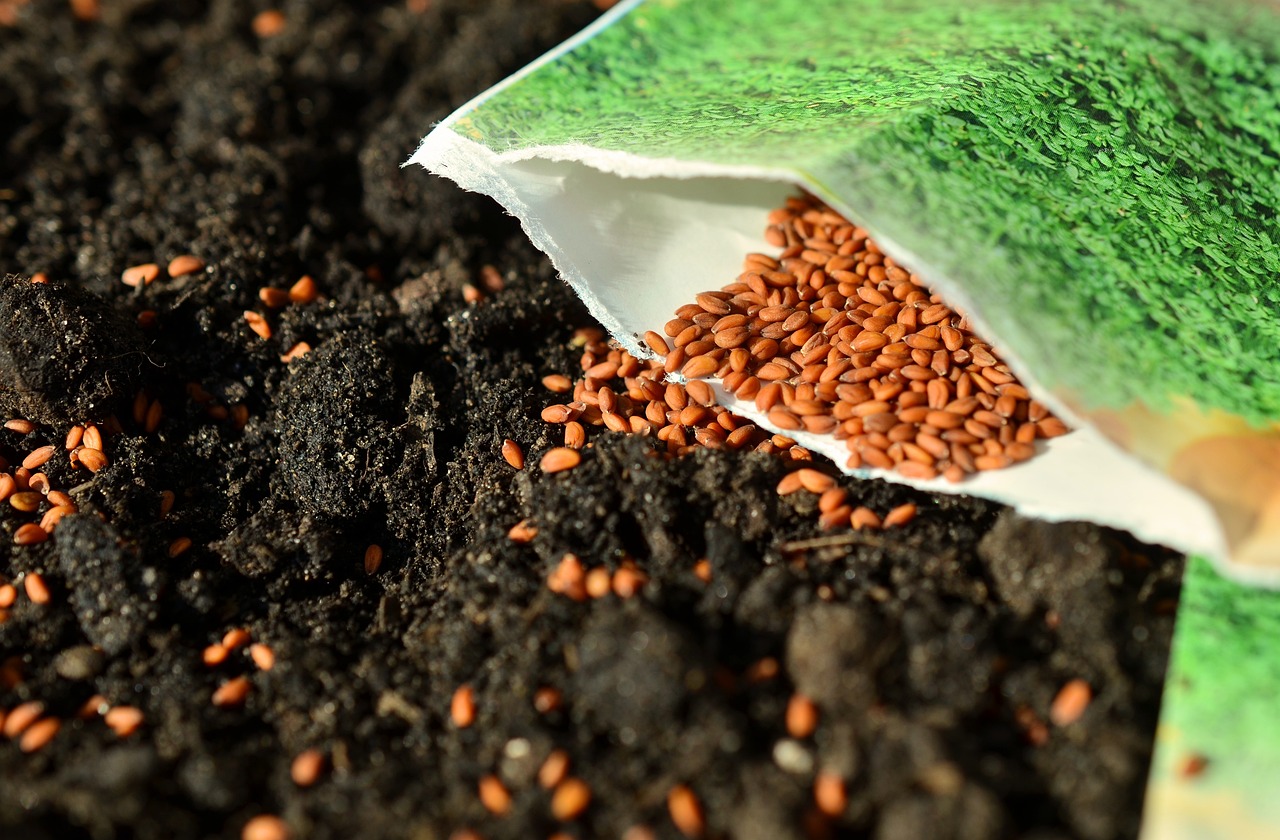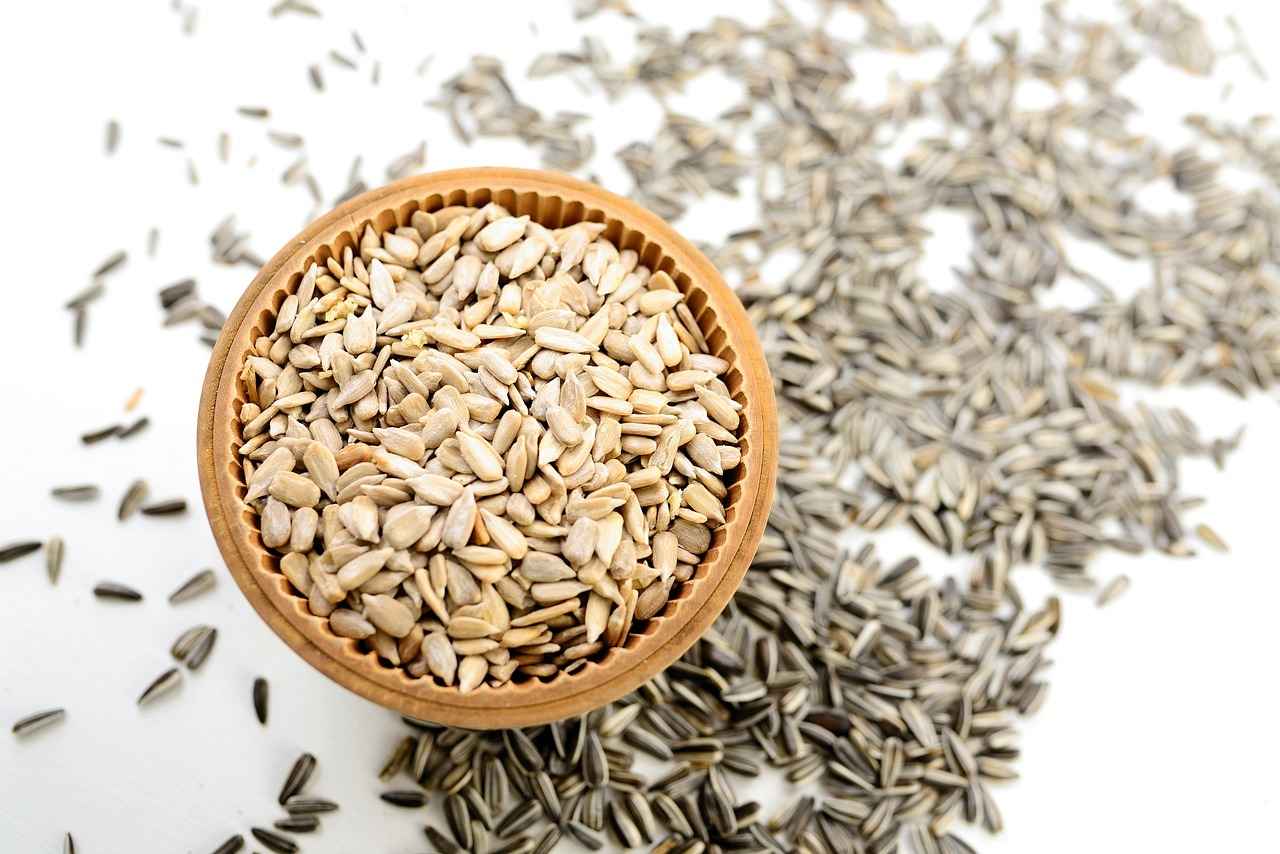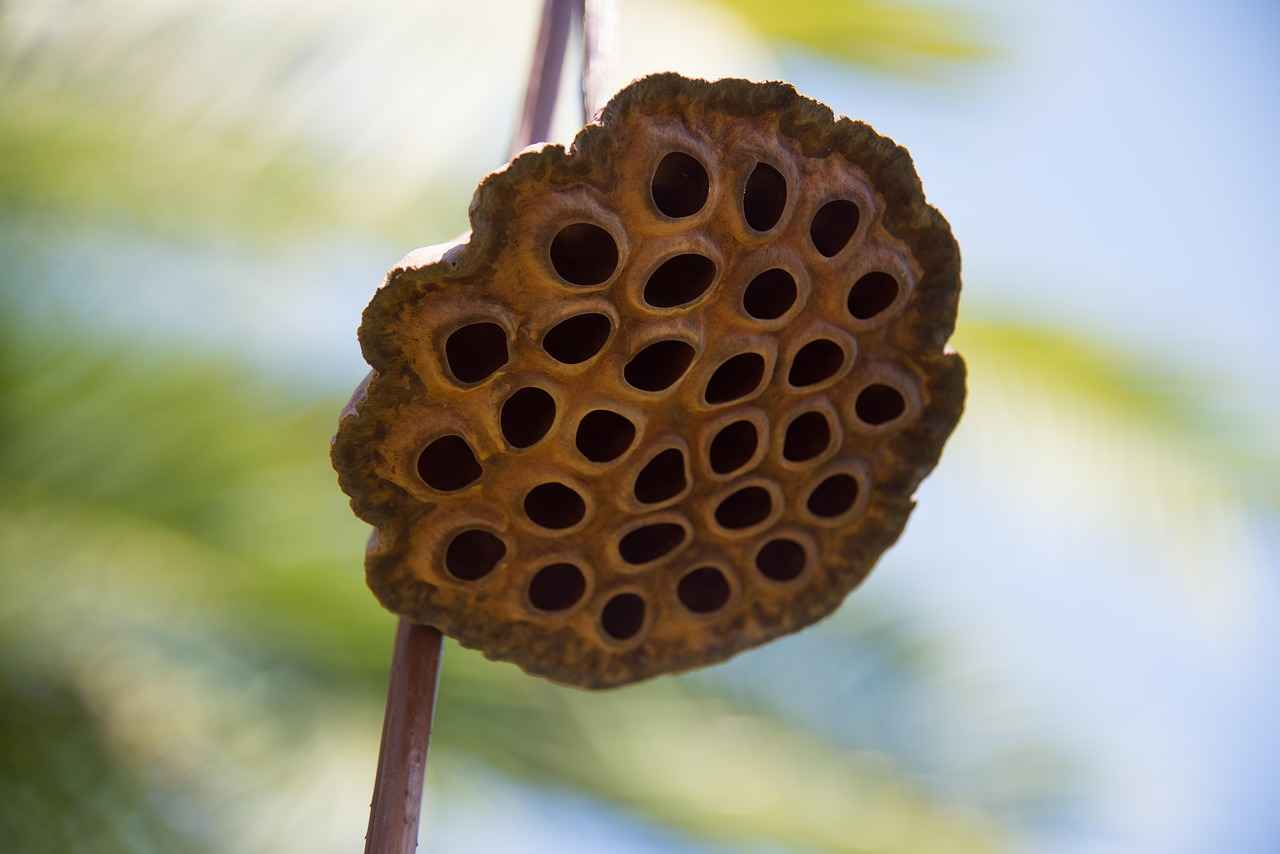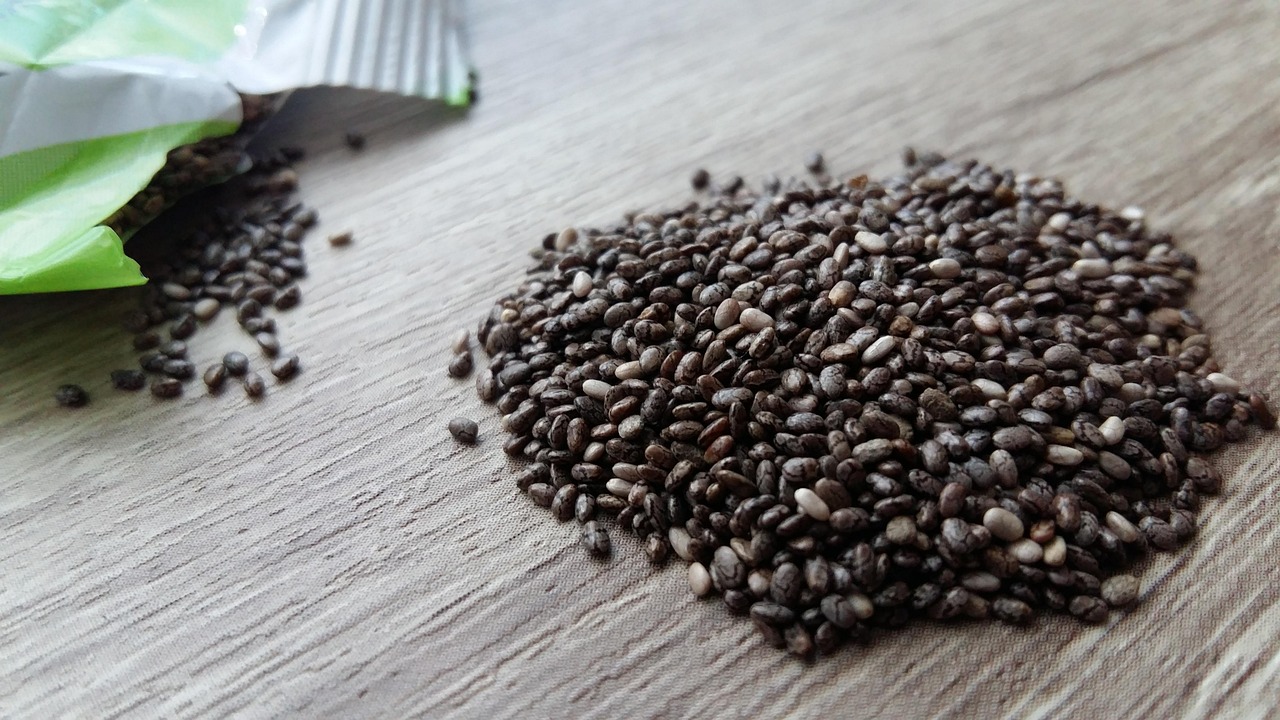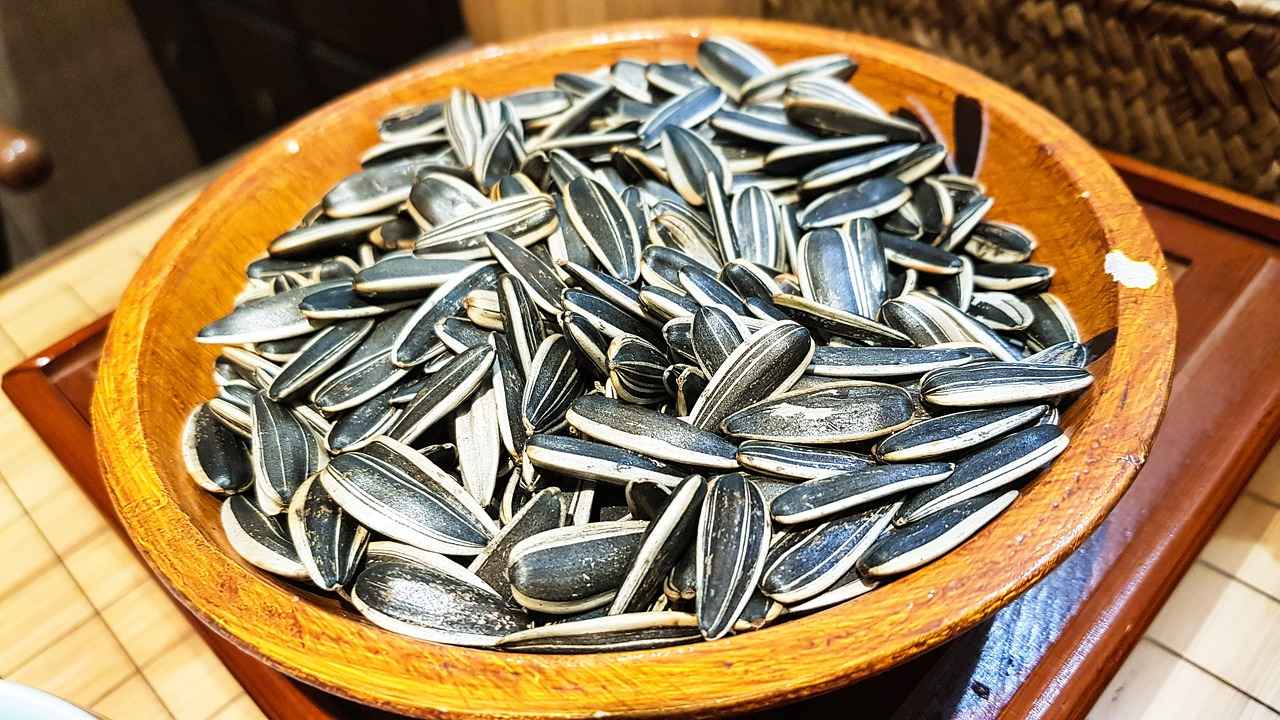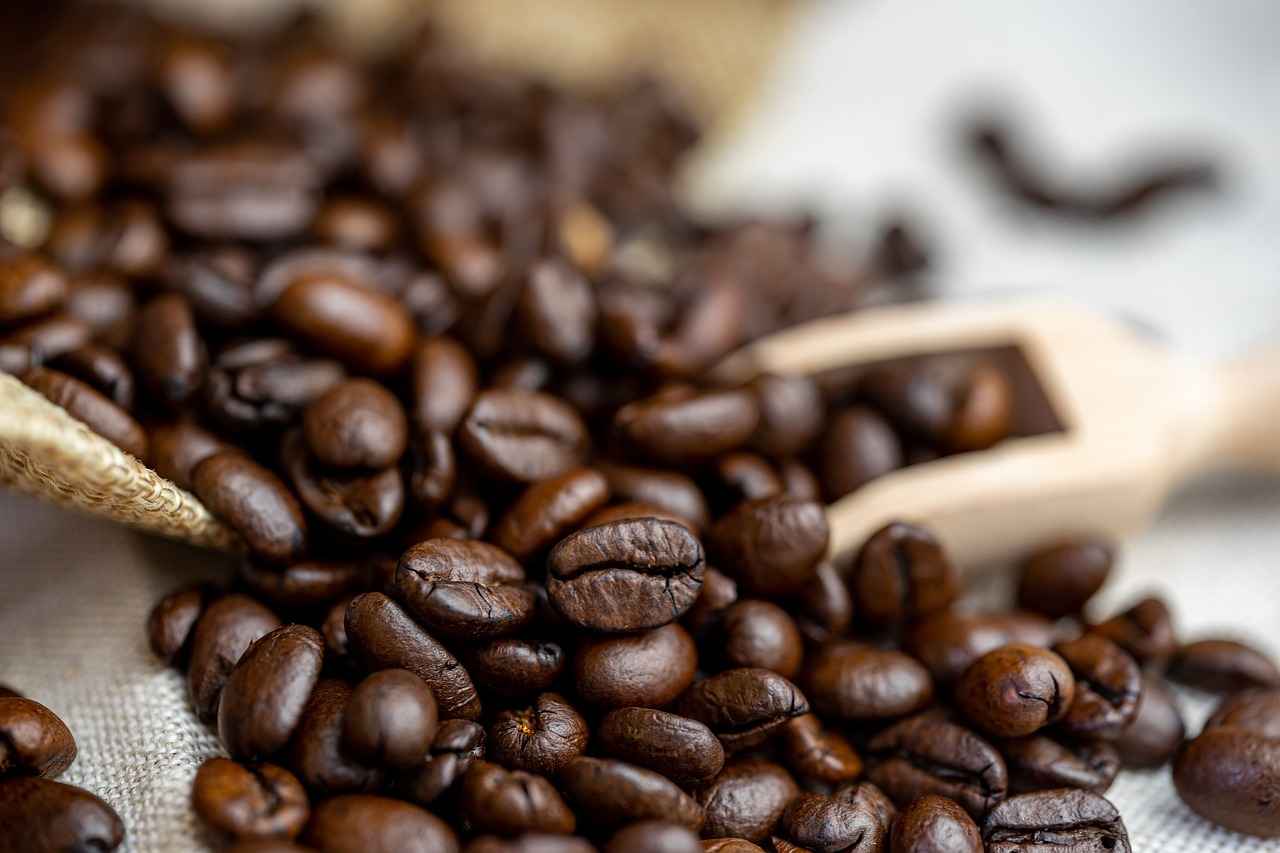Chia seeds have gained significant popularity as a superfood in recent years, and for good reason. These tiny seeds are packed with nutrients that can greatly enhance your overall well-being. From improving heart health to aiding in weight loss, the benefits of chia seeds are both numerous and impactful. Let’s explore how incorporating these small yet powerful seeds into your diet can lead to substantial health improvements.
What Are Chia Seeds?
Chia seeds are derived from the Salvia hispanica plant, which is native to Mexico and Guatemala. They are rich in omega-3 fatty acids, high in fiber, and contain a variety of essential nutrients, making them an excellent addition to a balanced diet.
Why Are Chia Seeds Considered a Superfood?
These seeds are often labeled as a superfood because of their impressive nutritional profile. They provide a concentrated source of vitamins, minerals, and antioxidants, all of which contribute to various health benefits. For instance, they are an excellent source of calcium, magnesium, and phosphorus, which are essential for maintaining strong bones.
How Do Chia Seeds Aid in Weight Loss?
Chia seeds can be an effective tool for those looking to lose weight. Their high fiber content promotes feelings of fullness, which can help reduce overall calorie intake. When consumed, chia seeds absorb water and expand in the stomach, creating a gel-like substance that slows digestion and prolongs satiety.
Are Chia Seeds Beneficial for Heart Health?
Yes, chia seeds are exceptionally beneficial for heart health. The omega-3 fatty acids found in these seeds can help lower cholesterol levels and reduce inflammation, contributing to a healthier cardiovascular system. Regular consumption may lower the risk of heart disease by improving cholesterol levels and promoting better blood circulation.
Can Chia Seeds Improve Digestive Health?
Chia seeds are an excellent source of dietary fiber, which plays a crucial role in digestive health. Their fiber content helps maintain regular bowel movements and prevents constipation. The soluble fiber in chia seeds absorbs water, which helps to soften stool and promote a healthy gut environment.
How Do Chia Seeds Support Bone Health?
In addition to their other benefits, chia seeds are rich in calcium, which is vital for bone structure and strength. Incorporating chia seeds into your diet can help support bone density, making them an excellent choice for individuals concerned about osteoporosis or other bone-related issues.
Are There Any Risks Associated with Chia Seeds?
While chia seeds are generally safe for most people, it’s important to consume them in moderation. Some individuals may experience digestive discomfort if they consume excessive amounts. To avoid potential issues, it’s advisable to start with small portions and gradually increase intake.
How to Incorporate Chia Seeds into Your Diet?
- Sprinkle chia seeds on salads for added crunch.
- Blend them into smoothies for a nutrient boost.
- Use them as a thickening agent in soups and sauces.
- Mix chia seeds into yogurt or oatmeal for a nutritious breakfast.
In conclusion, chia seeds offer an array of health benefits that can significantly enhance your overall well-being. Their rich nutritional profile, combined with their versatility in the kitchen, makes them a fantastic addition to any diet. Whether you are looking to improve heart health, aid digestion, or manage weight, chia seeds can be a powerful ally in your health journey.
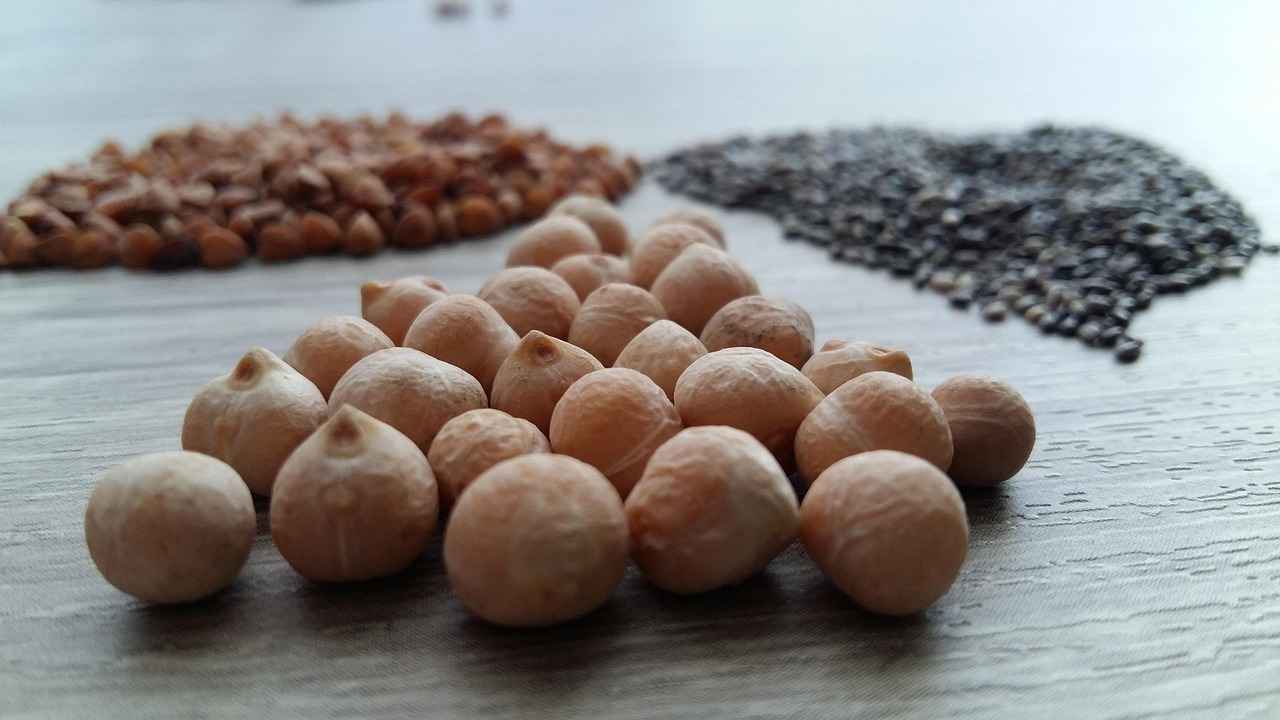
What Are Chia Seeds?
Chia seeds, derived from the Salvia hispanica plant, are tiny, nutrient-dense seeds that have gained immense popularity as a superfood. Native to Mexico and Guatemala, these small black seeds are packed with omega-3 fatty acids, fiber, and a variety of essential nutrients. Their impressive health benefits make them a staple in many diets worldwide.
Chia seeds are tiny black seeds that have been consumed for centuries, dating back to ancient civilizations. They are known for their remarkable ability to absorb liquid, expanding up to 10-12 times their weight when soaked in water. This unique property not only enhances their nutritional value but also makes them a versatile ingredient in various recipes.
Chia seeds are often labeled as a superfood due to their exceptional nutritional profile. They are an excellent source of:
- Omega-3 Fatty Acids: Essential for heart health and reducing inflammation.
- Dietary Fiber: Promotes digestive health and aids in weight management.
- Protein: Supports muscle growth and repair.
- Vitamins and Minerals: Rich in calcium, magnesium, and antioxidants.
This combination of nutrients contributes to various health benefits, making chia seeds a valuable addition to a balanced diet.
Chia seeds can be a beneficial ally in weight loss efforts. Their high fiber content helps to promote a feeling of fullness, which can lead to reduced calorie intake. When consumed, chia seeds absorb water and expand in the stomach, creating a gel-like substance that slows down digestion and prolongs satiety. This effect can help individuals manage their hunger levels more effectively.
Yes, chia seeds are known to support heart health. The omega-3 fatty acids found in chia seeds can help lower cholesterol levels and reduce inflammation, both of which are crucial for maintaining a healthy cardiovascular system. Regular consumption of chia seeds may also contribute to better blood pressure regulation and lower triglyceride levels.
Chia seeds are an excellent source of dietary fiber, which is essential for promoting digestive health. Their high fiber content aids in maintaining regular bowel movements and preventing constipation. The soluble fiber in chia seeds absorbs water, softening stool and promoting a healthy gut environment. Additionally, chia seeds may encourage the growth of beneficial gut bacteria, further enhancing digestive health.
Chia seeds are rich in calcium, phosphorus, and magnesium, all of which are vital for maintaining strong bones. Incorporating chia seeds into your diet can help support bone density and overall skeletal health. Calcium, in particular, is crucial for bone structure and strength, making chia seeds an excellent plant-based source of this essential mineral.
While chia seeds are generally safe for most individuals, there are some considerations to keep in mind. Overconsumption may lead to digestive discomfort, so it’s advisable to introduce them gradually into your diet. Starting with a small portion and increasing it slowly can help your digestive system adjust.
Additionally, although rare, some individuals may have allergies to chia seeds. It’s essential to consult with a healthcare provider if you have any concerns or if you are on medications that might interact with chia consumption.
In conclusion, chia seeds are a powerhouse of nutrients that can significantly enhance your health. Their versatility makes them easy to incorporate into various meals and snacks, allowing you to enjoy their numerous benefits.

Why Are Chia Seeds Considered a Superfood?
Chia seeds have gained immense popularity in the health and wellness community, often being referred to as a superfood. But what exactly makes these tiny seeds so special? With a rich nutritional profile, chia seeds offer a plethora of health benefits that can significantly enhance your overall well-being.
What Makes Chia Seeds Nutritional Powerhouses?
Originating from the Salvia hispanica plant, chia seeds are native to Mexico and Guatemala. These tiny black seeds are packed with essential nutrients, including:
- Omega-3 fatty acids: Known for their heart-healthy properties.
- Dietary fiber: Aids in digestion and promotes feelings of fullness.
- Proteins: Essential for muscle repair and growth.
- Vitamins and minerals: Including calcium, magnesium, and phosphorus, crucial for various bodily functions.
How Do Chia Seeds Contribute to Overall Wellness?
Chia seeds are not just a trendy health food; they offer numerous health benefits that contribute to a healthier lifestyle:
- Heart Health: The high levels of omega-3 fatty acids in chia seeds can help lower bad cholesterol and reduce inflammation, promoting cardiovascular health.
- Weight Management: Their high fiber content helps control appetite and can aid in weight loss by keeping you full longer.
- Digestive Health: Chia seeds support a healthy digestive system by promoting regular bowel movements and preventing constipation.
- Bone Health: Rich in calcium and other essential minerals, chia seeds can help maintain strong bones and prevent conditions like osteoporosis.
How Can You Easily Incorporate Chia Seeds into Your Diet?
Adding chia seeds to your meals is simple and delicious. Here are some ideas:
- Sprinkle them on salads for added crunch.
- Blend them into smoothies for a nutrient boost.
- Use them as a thickening agent in soups and sauces.
- Make chia pudding by soaking them in almond milk or coconut milk overnight.
Are There Any Risks to Consider?
While chia seeds are generally safe for most people, it’s important to consume them in moderation. Some individuals may experience digestive discomfort if they eat too many at once. It’s advisable to start with a small amount, such as a tablespoon, and gradually increase your intake.
Final Thoughts
In conclusion, chia seeds are indeed a superfood with remarkable health benefits. Their rich nutritional profile contributes to heart health, weight management, digestive wellness, and bone strength. By incorporating them into your diet, you can take a significant step towards enhancing your overall health and well-being.

How Do Chia Seeds Aid in Weight Loss?
Chia seeds, often hailed as a superfood, have gained popularity in the health and wellness community, particularly for their potential role in weight loss. These tiny, nutrient-dense seeds are packed with fiber, which can significantly aid individuals looking to manage their weight effectively.
The remarkable weight-loss benefits of chia seeds stem from their high fiber content. When consumed, chia seeds absorb water and expand in the stomach, creating a gel-like substance that promotes a feeling of fullness. This sensation of satiety helps to curb appetite and reduce the likelihood of overeating.
- Soluble Fiber: Chia seeds are rich in soluble fiber, which is crucial for weight management. This type of fiber slows down digestion and prolongs feelings of fullness, making it easier to stick to a calorie-controlled diet.
- Caloric Control: By keeping you satiated longer, chia seeds help in managing your overall caloric intake. This is essential for anyone aiming to lose weight, as it reduces the temptation to snack between meals.
Integrating chia seeds into your daily meals can be both simple and enjoyable. Here are some practical ways to include them in your diet:
- Breakfast Boost: Add chia seeds to your morning oatmeal or smoothie for an extra dose of fiber.
- Salad Enhancer: Sprinkle chia seeds on salads to enhance texture and nutritional value.
- Baking Ingredient: Incorporate them into baked goods, such as muffins or bread, for added health benefits.
Research suggests that the inclusion of chia seeds in a balanced diet can lead to significant weight loss over time. A study published in the Journal of Nutrition found that participants who consumed chia seeds experienced a greater reduction in body weight and waist circumference compared to those who did not.
To maximize the benefits of chia seeds for weight loss, consider the following tips:
- Hydration: Always soak chia seeds in water or milk before consumption to enhance their gel-forming capabilities, which aids in digestion.
- Portion Control: Start with a small amount, such as one tablespoon, and gradually increase as your body adjusts to the increased fiber intake.
- Balanced Diet: Pair chia seeds with other nutrient-dense foods to create balanced meals that support your weight loss goals.
While chia seeds are generally safe for most individuals, some may experience digestive discomfort if consumed in excessive amounts. It’s advisable to introduce them gradually into your diet, allowing your body to adapt to the increased fiber intake.
In summary, chia seeds are not just a trendy health food; they are a powerful ally in the journey toward weight loss. Their high fiber content, ability to promote satiety, and versatility in meal preparation make them an excellent addition to any diet. By incorporating chia seeds thoughtfully and mindfully, individuals can harness their benefits to achieve their weight management goals.
Understanding the Role of Fiber
is crucial in maintaining overall health, and chia seeds serve as an excellent source of this essential nutrient. The soluble fiber found in chia seeds has unique properties that can significantly influence digestion and weight management.
When chia seeds are consumed, they absorb water and expand, forming a gel-like substance in the stomach. This process not only slows down the digestive process but also prolongs feelings of fullness. As a result, individuals may experience a reduced appetite, which can aid in weight management and help prevent overeating. This characteristic makes chia seeds a popular choice for those looking to maintain or lose weight.
Soluble fiber dissolves in water, creating a viscous gel that slows gastric emptying. This mechanism plays a pivotal role in regulating blood sugar levels by slowing the absorption of glucose. Consequently, it helps in maintaining steady energy levels and reducing spikes in blood sugar, which is particularly beneficial for individuals with diabetes.
- Promotes Regular Bowel Movements: The high fiber content in chia seeds aids in softening stool, making it easier to pass and helping to prevent constipation.
- Supports Gut Health: The gel-like substance created by soluble fiber can also provide a favorable environment for beneficial gut bacteria, promoting a healthy microbiome.
- Reduces Digestive Disorders: By ensuring a well-functioning digestive system, chia seeds can help mitigate issues such as bloating and discomfort.
The ability of chia seeds to absorb water and expand in the stomach contributes to a sense of fullness. This satiety effect can help individuals manage their caloric intake more effectively. Research indicates that incorporating chia seeds into meals can lead to reduced hunger and lower overall food consumption throughout the day.
Integrating chia seeds into your daily meals can be both easy and enjoyable. Here are some practical suggestions:
- Add to Smoothies: Blend chia seeds into your favorite smoothie for added texture and nutritional value.
- Sprinkle on Salads: Use chia seeds as a crunchy topping on salads for an extra boost of fiber.
- Make Chia Pudding: Mix chia seeds with almond milk and let them sit overnight to create a delicious pudding.
While chia seeds offer numerous health benefits, it is important to consume them in moderation. Excessive intake of fiber, especially for those unaccustomed to a high-fiber diet, can lead to digestive discomfort, including bloating and gas. Therefore, it is advisable to gradually introduce chia seeds into your diet and ensure adequate hydration.
In summary, the soluble fiber in chia seeds plays a vital role in digestion and weight management. By incorporating these tiny but powerful seeds into your diet, you can enhance your overall health and well-being. With their ability to promote satiety and support digestive health, chia seeds are indeed a valuable addition to any balanced diet.
Incorporating Chia Seeds into Your Diet
can be an enjoyable and beneficial experience, enhancing both flavor and nutrition in your meals. These tiny superfoods are incredibly versatile and can be easily added to a variety of dishes. Below are some creative and delicious ways to incorporate chia seeds into your daily meals.
- Sprinkling on Salads: One of the simplest ways to enjoy chia seeds is by sprinkling them on top of your favorite salads. Their subtle crunch adds texture, while their nutritional benefits boost the overall health profile of your meal.
- Blending into Smoothies: Chia seeds blend seamlessly into smoothies, providing a thick and creamy texture. Just a tablespoon or two can enhance your smoothie with fiber and omega-3 fatty acids without altering the flavor.
- Using as a Thickening Agent: Chia seeds can absorb liquid and expand, making them an excellent thickening agent in recipes. Whether you’re making soups, sauces, or puddings, adding chia seeds can create a satisfying consistency.
- Baking with Chia Seeds: Incorporating chia seeds into your baked goods can boost their nutritional value. They can be added to muffins, bread, or pancakes for a healthy twist.
- Making Chia Pudding: A popular way to consume chia seeds is by making chia pudding. Combine chia seeds with your choice of milk, sweetener, and flavors, and let it sit overnight for a delicious and nutritious breakfast or snack.
Chia seeds are not just a trendy food; they offer a plethora of health benefits:
- Rich in Nutrients: Chia seeds are packed with essential nutrients including fiber, protein, and omega-3 fatty acids, which contribute to overall health.
- Promote Digestive Health: Their high fiber content aids digestion and helps maintain regular bowel movements, preventing constipation.
- Support Weight Management: The fiber in chia seeds promotes a feeling of fullness, which can help control appetite and reduce overall calorie intake.
- Enhance Heart Health: Chia seeds are known to lower cholesterol levels and reduce inflammation, supporting cardiovascular health.
When incorporating chia seeds into your diet, consider the following tips:
- Start Small: If you’re new to chia seeds, start with a small amount to allow your digestive system to adjust.
- Soak Before Consumption: Soaking chia seeds in water or milk before eating can enhance their digestibility and nutrient absorption.
- Experiment with Recipes: Don’t hesitate to try different recipes that include chia seeds. From smoothies to baked goods, the possibilities are endless.
Incorporating chia seeds into your diet can be both simple and delicious. With a variety of ways to enjoy them, adding these tiny seeds can significantly enhance your overall nutrition and health. Whether you choose to sprinkle them on salads, blend them into smoothies, or use them as a thickening agent in your favorite recipes, chia seeds are a nutritious addition to any meal.

Are Chia Seeds Beneficial for Heart Health?
Chia seeds have gained immense popularity in recent years, not only for their versatility in cooking but also for their remarkable health benefits. Among these benefits, their positive impact on heart health has drawn significant attention. In this article, we will explore how chia seeds contribute to cardiovascular well-being and why incorporating them into your diet can be a wise choice.
Yes, chia seeds are indeed beneficial for heart health due to their high levels of omega-3 fatty acids. These essential fats play a crucial role in lowering cholesterol levels and reducing inflammation, both of which are key factors in maintaining a healthy cardiovascular system. The omega-3 fatty acids found in chia seeds are primarily in the form of alpha-linolenic acid (ALA), which has been shown to have protective effects on the heart.
- Cholesterol Regulation: Omega-3 fatty acids help lower levels of low-density lipoprotein (LDL) cholesterol, often referred to as “bad” cholesterol. This reduction can lead to a lower risk of plaque buildup in the arteries.
- Blood Pressure Control: Regular consumption of omega-3s can help regulate blood pressure, which is vital for overall heart health.
- Inflammation Reduction: Chronic inflammation is a significant contributor to heart disease. Omega-3s possess anti-inflammatory properties that can help mitigate this risk.
Incorporating chia seeds into your diet can be a proactive approach to preventing heart disease. Studies suggest that regular intake of these seeds may lead to improved cholesterol levels and decreased inflammation markers in the body. This is particularly important for individuals with a family history of heart disease or those with existing risk factors.
For optimal heart health benefits, it is recommended to consume about 1 to 2 tablespoons of chia seeds daily. This amount can provide a sufficient dose of omega-3 fatty acids and other essential nutrients without overwhelming your digestive system.
Adding chia seeds to your meals is simple and delicious. Here are a few practical ideas:
- Chia Pudding: Mix chia seeds with your favorite milk (dairy or plant-based) and let them soak overnight for a nutritious breakfast or snack.
- Smoothies: Blend chia seeds into your smoothies for an extra nutrient boost.
- Salads: Sprinkle chia seeds on salads for added texture and nutrition.
While chia seeds are generally safe for most people, it’s important to consume them in moderation. Some individuals may experience digestive discomfort if they consume too many seeds at once. To avoid this, start with a small amount and gradually increase your intake.
In conclusion, chia seeds are not just a trendy superfood; they are a powerful ally for heart health. Their rich omega-3 fatty acid content, combined with other beneficial nutrients, makes them an excellent addition to a heart-healthy diet. By incorporating chia seeds into your daily meals, you can take a significant step towards enhancing your cardiovascular well-being.
The Impact of Omega-3 Fatty Acids
is a crucial topic when discussing the health benefits of chia seeds. These tiny seeds are a powerhouse of nutrients, particularly known for their high content of omega-3 fatty acids, which play a vital role in maintaining heart health and overall well-being.
Omega-3 fatty acids are essential fats that the body cannot produce on its own, making it necessary to obtain them through diet. Chia seeds are one of the best plant-based sources of these fatty acids, specifically alpha-linolenic acid (ALA). Regular consumption of chia seeds can lead to several heart health benefits.
- Regulating Blood Pressure: Omega-3 fatty acids help in reducing blood pressure levels, which is critical for preventing heart disease. Studies have shown that individuals who consume omega-3-rich foods exhibit lower blood pressure compared to those who do not.
- Lowering Triglycerides: High levels of triglycerides are a significant risk factor for heart disease. Omega-3 fatty acids can help lower these levels, thereby improving overall cardiovascular health.
- Reducing Inflammation: Chronic inflammation is linked to various heart conditions. Omega-3s possess anti-inflammatory properties that can help reduce inflammation throughout the body, promoting a healthier heart.
Beyond heart health, omega-3 fatty acids contribute to several other aspects of well-being:
- Brain Function: Omega-3 fatty acids are vital for brain health. They support cognitive function and may reduce the risk of neurodegenerative diseases.
- Joint Health: The anti-inflammatory properties of omega-3s can also help alleviate joint pain and stiffness, making them beneficial for those with arthritis.
- Mood Regulation: Some research suggests that omega-3 fatty acids may play a role in mood regulation and could help alleviate symptoms of depression and anxiety.
Incorporating chia seeds into your daily routine is easy and versatile. Here are some practical tips:
- Add to Smoothies: Blend chia seeds into your morning smoothie for an added nutrient boost.
- Sprinkle on Salads: Use chia seeds as a topping for salads to enhance texture and nutrition.
- Make Chia Pudding: Mix chia seeds with your favorite plant-based milk and let it sit overnight for a delicious and healthy pudding.
In conclusion, the omega-3 fatty acids found in chia seeds are indispensable for maintaining heart health and overall wellness. By incorporating these seeds into your diet, you can enjoy a myriad of health benefits that support not only your heart but also your brain and joint health. Whether you choose to sprinkle them on your meals or blend them into smoothies, chia seeds are a simple yet effective way to enhance your nutrition.
Preventing Heart Disease
is a crucial aspect of maintaining overall health, and incorporating chia seeds into your diet can play a significant role in achieving this goal. These tiny seeds, packed with essential nutrients, have been linked to improved heart health through various mechanisms. Let’s explore how chia seeds can help in reducing the risk of heart disease.
Chia seeds are rich in omega-3 fatty acids, which are known for their heart-protective properties. These fatty acids help to lower levels of LDL cholesterol (often referred to as “bad” cholesterol) while simultaneously increasing HDL cholesterol (the “good” cholesterol). A balanced cholesterol profile is vital for maintaining a healthy heart and reducing the risk of cardiovascular diseases.
Chronic inflammation is a significant contributor to heart disease. The anti-inflammatory properties of chia seeds can help mitigate this risk. By incorporating these seeds into your diet, you can benefit from their ability to reduce inflammatory markers in the body, thus promoting a healthier cardiovascular system.
High blood pressure is another major risk factor for heart disease. The fiber and omega-3 fatty acids found in chia seeds can aid in regulating blood pressure levels. Regular consumption may lead to improved vascular function and reduced arterial stiffness, contributing to better overall heart health.
Yes, chia seeds are loaded with antioxidants, which help combat oxidative stress in the body. Oxidative stress can lead to cellular damage and is a known factor in the development of heart disease. By integrating chia seeds into your diet, you can enhance your body’s ability to fight off these harmful effects.
- Breakfast Boost: Add chia seeds to your morning smoothie or oatmeal for a nutritious start to your day.
- Baking Substitute: Use chia seeds as an egg substitute in baking by mixing them with water to create a gel.
- Salad Topping: Sprinkle chia seeds on salads for added crunch and nutrition.
- Snack Time: Mix chia seeds with yogurt or blend them into a healthy pudding.
To reap the heart health benefits of chia seeds, it’s advisable to consume about 1 to 2 tablespoons per day. This amount provides a significant dose of omega-3 fatty acids and fiber without overwhelming your digestive system.
While chia seeds are generally safe for most individuals, it is important to introduce them gradually into your diet. Some people may experience digestive discomfort if they consume too many seeds at once. Always consult with a healthcare provider if you have any concerns, especially if you are on medication or have pre-existing health conditions.
Incorporating chia seeds into your diet can be a simple yet effective way to enhance heart health. With their rich nutritional profile, they provide a multitude of benefits that contribute to preventing heart disease. By embracing these tiny seeds, you can take significant steps toward a healthier heart.
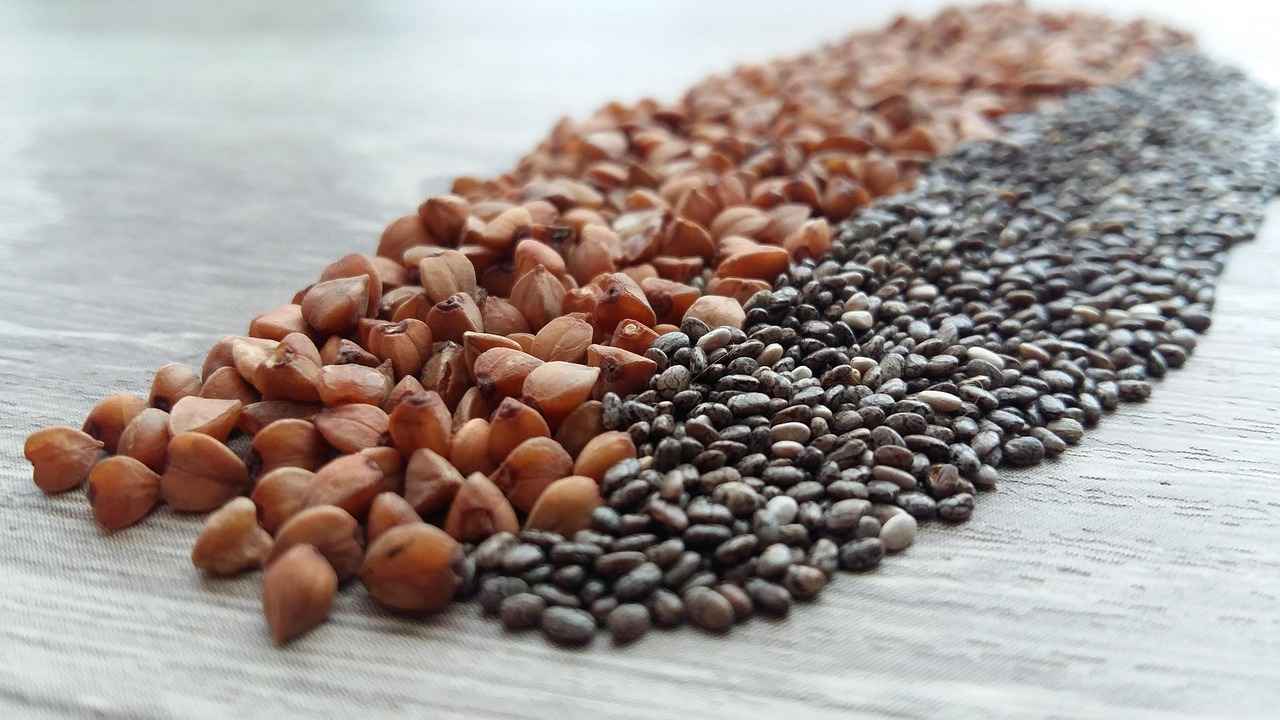
Can Chia Seeds Improve Digestive Health?
Chia seeds have gained immense popularity as a superfood in recent years, and for good reason. One of their most significant benefits lies in their ability to enhance digestive health. Packed with dietary fiber, these tiny seeds can play a crucial role in maintaining a healthy digestive system.
Chia seeds are an exceptional source of diets rich in fiber. Each serving contains a substantial amount of soluble and insoluble fiber, which is essential for promoting regular bowel movements. This fiber content helps to bulk up stool and facilitate its passage through the digestive tract, thereby preventing issues such as constipation.
The soluble fiber found in chia seeds has a unique ability to absorb water, forming a gel-like consistency in the stomach. This gel slows down digestion, which not only prolongs feelings of fullness but also aids in nutrient absorption. By keeping the digestive system functioning smoothly, chia seeds help to mitigate symptoms of irritable bowel syndrome (IBS) and other digestive disorders.
Another remarkable benefit of chia seeds is their potential to promote the growth of beneficial gut bacteria. A healthy gut microbiome is vital for overall well-being, influencing everything from immune function to mood regulation. The fiber in chia seeds serves as a prebiotic, providing nourishment for these beneficial bacteria.
Adding chia seeds to your meals is simple and versatile. They can be easily incorporated into smoothies, yogurt, or oatmeal. Additionally, chia seeds can be used as a thickening agent in soups and sauces, or even as a replacement for eggs in vegan baking. Here are a few easy ways to include them in your diet:
- Sprinkle on salads for added crunch.
- Mix into smoothies for a nutrient boost.
- Soak in water or almond milk to create a delicious pudding.
- Add to baked goods for extra fiber and nutrition.
While chia seeds are generally safe for most individuals, it’s essential to consume them in moderation. Due to their high fiber content, consuming too many chia seeds at once can lead to digestive discomfort, including bloating or gas. It’s advisable to start with a small amount and gradually increase your intake to allow your digestive system to adjust.
In summary, chia seeds are a powerhouse of nutrients that can significantly improve digestive health. Their high fiber content aids in maintaining regular bowel movements, while their ability to promote beneficial gut bacteria contributes to a healthier digestive system overall. By incorporating chia seeds into your diet, you can harness their numerous health benefits and support your digestive health effectively.
The Benefits of Soluble Fiber
are numerous and play a vital role in maintaining overall health. One of the most significant sources of soluble fiber is found in chia seeds. These tiny seeds, when consumed, can transform the way our digestive system operates.
When chia seeds are ingested, they absorb water and expand, forming a gel-like substance. This process is crucial as it aids in digestion by:
- Softening Stool: The gel-like consistency helps to soften the stool, making it easier to pass. This is particularly beneficial for individuals suffering from constipation.
- Promoting Regularity: Regular consumption of chia seeds can help maintain regular bowel movements, reducing the likelihood of digestive issues.
- Enhancing Gut Environment: The soluble fiber creates a favorable environment in the gut, supporting the growth of beneficial bacteria.
Research indicates that a healthy gut microbiome is linked to improved digestion and overall health. By promoting the growth of beneficial gut bacteria, chia seeds may help enhance nutrient absorption and boost immune function.
Furthermore, the soluble fiber in chia seeds can help regulate blood sugar levels. This is particularly important for individuals managing diabetes or those at risk of developing the condition. The gel-like substance slows down the absorption of sugar into the bloodstream, preventing spikes in blood glucose levels.
In addition to digestive health, the benefits of soluble fiber extend to heart health. Studies have shown that a diet high in soluble fiber can help lower cholesterol levels, reducing the risk of heart disease. The fiber binds to cholesterol in the digestive system, helping to eliminate it from the body.
Incorporating chia seeds into your diet is straightforward. They can be added to smoothies, yogurt, oatmeal, or even baked goods. Their versatility makes them an easy addition to various meals, ensuring you reap the benefits of soluble fiber without much effort.
While chia seeds are generally safe for consumption, it is essential to introduce them gradually into your diet. This allows your digestive system to adjust to the increased fiber intake, minimizing any potential discomfort.
In conclusion, the soluble fiber in chia seeds is a powerhouse for digestive health and overall wellness. By softening stool, promoting regularity, and enhancing gut health, chia seeds serve as an excellent addition to any diet. Their additional benefits for heart health and blood sugar regulation further solidify their status as a superfood. Embrace the power of chia seeds and enjoy the myriad health benefits they offer.
Supporting Gut Health
is a crucial aspect of overall wellness, and chia seeds play a significant role in this area. These tiny seeds are not just a trendy superfood; they offer numerous health benefits, particularly for digestive health. By incorporating chia seeds into your diet, you can foster a healthier gut environment, which is essential for nutrient absorption and immune function.
Chia seeds are an excellent source of dietary fiber, which is vital for maintaining a healthy digestive system. The high fiber content in chia seeds aids in promoting regular bowel movements and preventing constipation. When consumed, chia seeds absorb water and expand, forming a gel-like substance that can help soften stool and facilitate easier passage through the digestive tract.
The soluble fiber found in chia seeds plays a crucial role in digestion. This type of fiber absorbs water, which not only helps to soften stool but also creates a conducive environment for beneficial gut bacteria to thrive. A healthy gut microbiome is essential for optimal digestion and can significantly influence overall health.
One of the remarkable benefits of chia seeds is their ability to promote the growth of beneficial gut bacteria. These bacteria are essential for breaking down food, synthesizing vitamins, and enhancing immune function. A balanced gut microbiome can lead to improved digestion and a reduced risk of gastrointestinal disorders.
A healthy gut is closely linked to a robust immune system. About 70% of the immune system is housed in the gut, making it crucial for overall health. By supporting the growth of beneficial gut bacteria, chia seeds can indirectly bolster your immune response, helping your body fend off infections and illnesses.
Adding chia seeds to your meals is simple and versatile. Here are some practical ways to include them:
- Sprinkle on Salads: Add chia seeds to salads for an extra crunch and nutritional boost.
- Blend into Smoothies: Incorporate chia seeds into your favorite smoothies for added fiber and omega-3 fatty acids.
- Use as a Thickening Agent: Mix chia seeds with liquids to create a gel-like consistency, perfect for puddings or jams.
- Top Your Breakfast: Add chia seeds to yogurt or oatmeal for a nutritious breakfast option.
While chia seeds are generally safe for most individuals, it’s essential to consume them in moderation. Overconsumption can lead to digestive discomfort due to their high fiber content. It is advisable to start with small amounts and gradually increase your intake to allow your digestive system to adjust.
Before making significant changes to your diet, especially if you have existing health conditions or are taking medications, consulting with a healthcare provider is recommended. They can provide personalized advice and help you determine the right amount of chia seeds for your health needs.
In summary, chia seeds are a powerhouse of nutrition that can significantly support gut health. By promoting the growth of beneficial gut bacteria and enhancing digestion, they contribute to overall wellness and immune function. Incorporating chia seeds into your daily diet can be a simple yet effective way to improve your digestive health.

How Do Chia Seeds Support Bone Health?
Chia seeds are often celebrated for their numerous health benefits, and one of the most significant advantages they offer is their ability to support bone health. These tiny seeds are not only packed with essential nutrients but also play a vital role in maintaining strong and healthy bones.
Chia seeds are an excellent source of calcium, phosphorus, and magnesium, all of which are essential minerals necessary for maintaining the integrity and strength of our bones. A diet rich in these minerals can help prevent bone-related issues and promote overall skeletal health.
Calcium is crucial for bone structure and density. It is the primary mineral found in bones, and adequate calcium intake is essential for developing strong bones, especially in children and adolescents. Chia seeds provide a plant-based source of calcium, making them an ideal choice for those who follow a vegan or vegetarian diet. Just two tablespoons of chia seeds contain approximately 18% of the recommended daily intake of calcium.
Phosphorus is another vital mineral that works closely with calcium to build and maintain strong bones. It helps in the formation of bone tissue and plays a role in energy production. Chia seeds are rich in phosphorus, providing about 27% of the daily recommended intake in just a small serving.
Magnesium is equally important as it aids in converting vitamin D into its active form, which is necessary for calcium absorption. A deficiency in magnesium can lead to weakened bones and increase the risk of fractures. Chia seeds are a fantastic source of magnesium, offering around 30% of the daily requirement in a single serving.
Osteoporosis is a condition characterized by weak and brittle bones, often affecting older adults and post-menopausal women. Regular consumption of chia seeds can be a proactive approach to preventing osteoporosis due to their high mineral content. Incorporating chia seeds into your diet may help improve bone density and strength, reducing the risk of fractures and breaks.
- Chia Pudding: Soak chia seeds in your choice of milk or yogurt overnight to create a delicious and nutritious pudding.
- Smoothies: Blend chia seeds into your favorite smoothie for an added nutrient boost.
- Baking: Add chia seeds to bread, muffins, or pancakes for a healthy twist.
- Salads: Sprinkle chia seeds on salads for added crunch and nutrition.
While chia seeds are generally safe for most individuals, it is essential to consume them in moderation. Some people may experience digestive discomfort if they consume too many chia seeds at once due to their high fiber content. It’s advisable to start with small amounts and gradually increase your intake to allow your digestive system to adjust.
Incorporating chia seeds into your daily diet can provide numerous benefits for bone health. With their rich content of calcium, phosphorus, and magnesium, these tiny seeds can play a significant role in maintaining strong bones and preventing osteoporosis. By including chia seeds in various dishes, you can easily enhance your nutrient intake and support your skeletal health.
The Role of Calcium in Bone Health
Calcium plays a crucial role in maintaining strong and healthy bones. As one of the most abundant minerals in the human body, it is essential not only for bone structure but also for various physiological functions. A significant concern for many individuals, particularly as they age, is how to ensure adequate calcium intake to prevent bone-related issues.
Calcium is a key component of bone tissue. It provides strength and structure, ensuring that bones remain dense and resilient. Without sufficient calcium, bones can become weak and brittle, leading to conditions such as osteoporosis. This is particularly concerning for older adults and post-menopausal women, who are at a higher risk of developing bone density issues.
Chia seeds are an excellent source of calcium, making them a fantastic addition to a balanced diet. Just one ounce (about 28 grams) of chia seeds contains approximately 18% of the recommended daily intake of calcium. This plant-based source of calcium is especially beneficial for those who follow a vegetarian or vegan diet, as it offers a natural alternative to dairy products.
In addition to calcium, chia seeds are rich in other essential minerals such as phosphorus and magnesium. Phosphorus works in tandem with calcium to build strong bones, while magnesium helps regulate calcium levels in the body. Together, these nutrients contribute to maintaining optimal bone health.
- Breakfast Boost: Add chia seeds to your morning oatmeal or yogurt for a nutritious start to your day.
- Smoothie Enhancer: Blend chia seeds into your favorite smoothies for added texture and nutrition.
- Baking Ingredient: Incorporate chia seeds into baked goods like muffins or bread for an extra health kick.
- Salad Topper: Sprinkle chia seeds on salads for a delightful crunch and nutritional boost.
Regular consumption of chia seeds may help in preventing osteoporosis by providing the body with the necessary nutrients for bone health. Studies suggest that adequate calcium intake, along with other minerals found in chia seeds, can significantly reduce the risk of developing this debilitating condition.
While chia seeds are generally safe for most people, it is important to consume them in moderation. Some individuals may experience digestive discomfort if they consume excessive amounts. It is advisable to start with a small serving and gradually increase the intake to allow your body to adjust.
If you have any concerns about your calcium intake or bone health, it is always best to consult with a healthcare professional. They can provide personalized advice based on your individual health needs and dietary preferences.
In summary, incorporating chia seeds into your diet can significantly enhance your calcium intake and support overall bone health. With their rich nutritional profile, chia seeds are a simple yet effective way to ensure your bones remain strong and healthy.
Preventing Osteoporosis
Osteoporosis is a silent disease that gradually weakens bones, making them fragile and more susceptible to fractures. This condition is particularly concerning for older adults and post-menopausal women due to hormonal changes that affect bone density. Regular consumption of chia seeds can be a proactive approach to maintaining bone health and preventing osteoporosis.
Chia seeds are a powerhouse of essential nutrients that contribute to bone strength. They are particularly rich in calcium, which is crucial for bone structure. In fact, one ounce of chia seeds contains approximately 18% of the recommended daily intake of calcium. This makes them an excellent plant-based source for individuals seeking to enhance their calcium intake without relying solely on dairy products.
In addition to calcium, chia seeds are also high in phosphorus and magnesium, two other minerals that play vital roles in bone health. Phosphorus works in conjunction with calcium to build strong bones and teeth, while magnesium is essential for converting vitamin D into its active form, which helps the body absorb calcium more effectively.
Incorporating chia seeds into your diet can be simple and versatile. They can be added to smoothies, oatmeal, or yogurt, or used as an ingredient in baked goods. When mixed with liquid, chia seeds expand and form a gel-like substance, which can be a nutritious thickening agent for various recipes.
Moreover, chia seeds are an excellent source of omega-3 fatty acids, which have anti-inflammatory properties that may also contribute to bone health. Chronic inflammation has been linked to bone loss, and by reducing inflammation, chia seeds can help protect against the deterioration of bone density.
To maximize the benefits of chia seeds for bone health, it is essential to maintain a balanced diet rich in other nutrients that support bone density. This includes foods high in vitamin D, such as fatty fish and fortified dairy products, as well as leafy greens and nuts that provide additional calcium and magnesium.
For those concerned about osteoporosis, it is also important to engage in regular weight-bearing exercises. Activities like walking, jogging, and resistance training can help stimulate bone formation and improve overall bone strength. When combined with a nutrient-rich diet that includes chia seeds, these lifestyle choices can significantly reduce the risk of developing osteoporosis.
In summary, the incorporation of chia seeds into your daily diet can be a beneficial strategy in the fight against osteoporosis. Their rich nutrient profile, including calcium, phosphorus, magnesium, and omega-3 fatty acids, supports bone health and helps maintain bone density. By adopting a holistic approach that includes a balanced diet and regular exercise, individuals can take proactive steps towards preventing osteoporosis and ensuring long-term skeletal health.
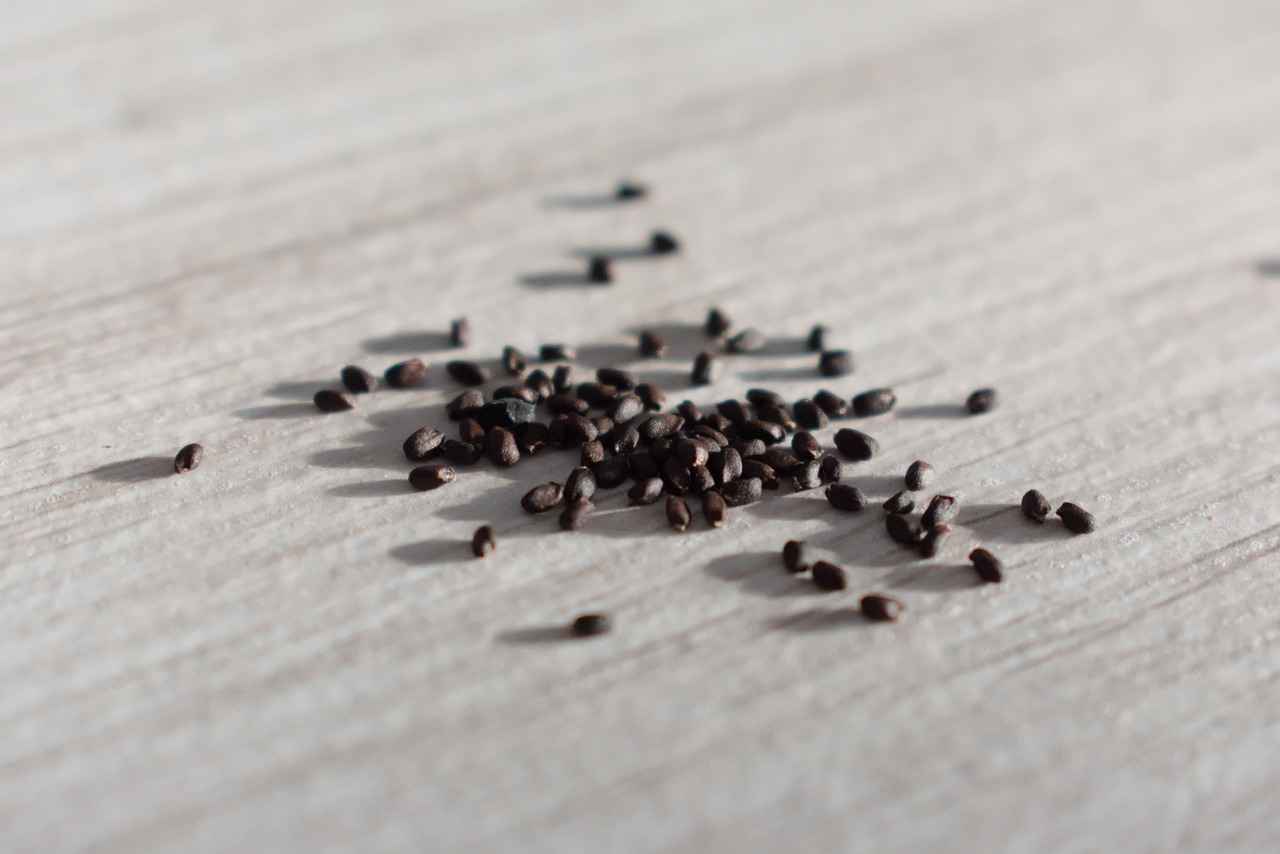
Are There Any Risks Associated with Chia Seeds?
Chia seeds have gained immense popularity as a health food in recent years, celebrated for their numerous benefits. However, like any food, they come with certain risks that consumers should be aware of. Understanding these risks is crucial for those looking to incorporate chia seeds into their diet safely.
While chia seeds are generally safe for most individuals, there are some potential risks associated with their consumption. These include:
- Digestive Issues: Some people may experience digestive discomfort, such as bloating, gas, or diarrhea, particularly if they consume chia seeds in excessive amounts.
- Allergic Reactions: Although rare, some individuals may have an allergy to chia seeds, leading to symptoms like itching, swelling, or difficulty breathing.
- Interactions with Medications: Chia seeds can interact with certain medications, especially those that affect blood sugar levels or blood pressure.
To enjoy the benefits of chia seeds without experiencing digestive issues, it is essential to introduce them into your diet gradually. Here are some tips:
- Start Small: Begin with a small amount, such as one teaspoon, and gradually increase your intake over time.
- Hydration is Key: Chia seeds absorb a significant amount of water. Ensure you drink plenty of fluids to help them expand properly in your stomach.
- Mix with Other Foods: Incorporating chia seeds into smoothies, yogurt, or oatmeal can help mitigate digestive discomfort.
If you have a history of food allergies, it’s crucial to approach chia seeds with caution. Start by consuming a small quantity and monitor your body’s reaction. If you experience any adverse symptoms, discontinue use and consult a healthcare professional.
Moreover, if you are on medication, particularly those for diabetes or hypertension, it’s advisable to consult with your doctor before adding chia seeds to your diet. This will help ensure that there are no potential interactions that could affect your health.
Research on the long-term effects of consuming chia seeds is still ongoing. However, it is generally believed that when consumed in moderation, chia seeds can be a beneficial addition to a balanced diet. Overconsumption, on the other hand, may lead to potential health issues.
In summary, while chia seeds offer numerous health benefits, it is essential to be aware of the potential risks associated with their consumption. By introducing them gradually into your diet and staying informed about allergies and medication interactions, you can safely enjoy the advantages of this superfood.
Managing Portion Sizes
When it comes to incorporating chia seeds into your diet, understanding how to manage portion sizes is crucial. These tiny seeds are packed with nutrients and can offer numerous health benefits, but it’s important to consume them wisely to avoid any potential digestive discomfort.
Chia seeds are incredibly high in fiber, which can be beneficial for digestive health. However, consuming them in large amounts right away may lead to gas, bloating, or even constipation. To prevent these adverse effects, it’s advisable to start with small portions, such as 1 teaspoon (about 5 grams), and gradually increase your intake. This allows your digestive system to adjust to the increased fiber load.
Once you’ve started with a small portion, you can gradually increase the amount over time. A common recommendation is to add an additional teaspoon every few days until you reach a maximum of about 2 tablespoons (30 grams) per day, which is often considered a safe and effective amount for most people.
Everyone’s digestive system reacts differently to new foods, so it’s essential to listen to your body. If you experience any discomfort, consider reducing your intake or taking a break before trying again. Keeping a food diary can also help you track how your body responds to chia seeds, allowing you to adjust your consumption accordingly.
Chia seeds can be easily added to various dishes, making them a versatile addition to your diet. Here are some popular ways to incorporate them:
- Sprinkling on salads for added crunch
- Blending into smoothies for a nutrient boost
- Mixing into yogurt or oatmeal
- Using as a thickening agent in soups and sauces
Experimenting with different recipes can make it easier to find your ideal portion size while enjoying the benefits of chia seeds.
While chia seeds are generally safe, it’s important to be aware of potential allergies. Some individuals may experience allergic reactions, which can manifest as skin rashes or gastrointestinal issues. If you suspect an allergy or if you are taking medications that could interact with chia seeds, consulting with a healthcare provider is advisable.
Managing portion sizes when introducing chia seeds into your diet is essential for maximizing their health benefits while minimizing any potential adverse effects. Starting small and gradually increasing your intake can help your digestive system adjust, allowing you to enjoy this superfood without discomfort. By listening to your body and experimenting with various recipes, you can find the perfect balance that works for you.
Potential Allergies and Interactions
Chia seeds are celebrated for their numerous health benefits, but it’s essential to acknowledge that, though rare, some individuals may experience allergies or adverse reactions to these tiny seeds. Understanding these potential risks is crucial for anyone considering adding chia seeds to their diet.
Individuals allergic to chia seeds may experience a range of symptoms, which can vary in severity. Common symptoms include:
- Skin Reactions: Hives, rash, or eczema may occur.
- Gastrointestinal Issues: Nausea, vomiting, or diarrhea can be signs of an allergic reaction.
- Respiratory Problems: Difficulty breathing, wheezing, or nasal congestion may arise.
If you notice any of these symptoms after consuming chia seeds, it is advisable to seek medical attention promptly.
While chia seed allergies are uncommon, certain individuals may be more susceptible:
- Individuals with Existing Allergies: Those who are allergic to other seeds, such as sesame or flaxseed, may have a higher risk.
- People with Food Allergies: If you have a history of food allergies, it’s prudent to approach chia seeds with caution.
Before introducing chia seeds into your diet, particularly if you have known allergies or are taking medications, it’s crucial to consult with a healthcare provider. They can offer personalized advice and assess any potential interactions with medications, such as:
- Blood Thinners: Chia seeds can affect blood clotting due to their omega-3 fatty acid content, which may amplify the effects of anticoagulant medications.
- Diabetes Medications: The high fiber content in chia seeds can influence blood sugar levels, necessitating adjustments in medication dosages.
If you’re considering adding chia seeds to your meals, it’s important to do so gradually. Start with small amounts to see how your body reacts:
- Begin with a teaspoon: This allows your digestive system to adjust to the increased fiber intake.
- Monitor your body: Pay attention to any adverse reactions or discomfort.
- Stay hydrated: Chia seeds absorb water, so ensure you drink enough fluids to aid digestion.
While chia seeds offer remarkable health benefits, it’s vital to be aware of potential allergies and interactions. By consulting with a healthcare provider and introducing chia seeds gradually, you can enjoy their nutritional advantages while minimizing risks.
Frequently Asked Questions
- What are chia seeds?
Chia seeds are tiny black seeds from the Salvia hispanica plant, native to Mexico and Guatemala. They’re packed with nutrients like omega-3 fatty acids, fiber, and essential minerals, making them a fantastic addition to your diet.
- How do chia seeds help with weight loss?
The high fiber content in chia seeds helps you feel full longer, which can reduce your overall calorie intake. When they absorb water, they expand in your stomach, creating a gel-like substance that slows digestion and keeps hunger at bay.
- Are chia seeds good for heart health?
Absolutely! Chia seeds are rich in omega-3 fatty acids that can lower cholesterol levels and reduce inflammation, contributing to a healthier heart and potentially lowering the risk of heart disease.
- Can chia seeds improve digestive health?
Yes, their high fiber content promotes regular bowel movements and can help prevent constipation. They also support gut health by fostering the growth of beneficial bacteria.
- How can I incorporate chia seeds into my diet?
You can sprinkle them on salads, blend them into smoothies, or even use them as a thickening agent in recipes. They’re incredibly versatile!
- Are there any risks associated with chia seeds?
While chia seeds are generally safe, consuming them in excessive amounts can cause digestive discomfort. It’s best to start with small portions and gradually increase your intake.




